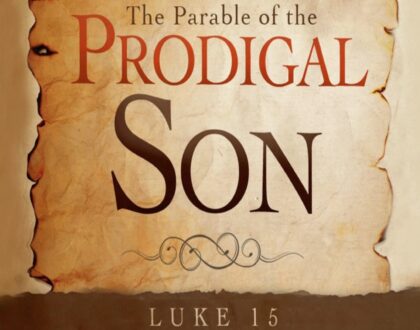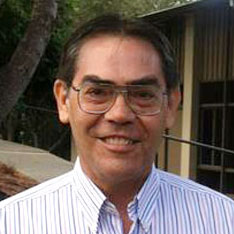Christ in You

Luke 10: 38-42
Now as [Jesus and his disciples] went on their way, he entered a certain village, where a woman names Martha welcomed him into her home. She had a sister named Mary, who sat at the Lord’s feet and listened to what he was saying. But Martha was distracted by her many tasks, so she came to him and asked, “Lord, do you not care that my sister has left me to do all the work by myself? Tell her then to help me.” But the Lord answered her, “Martha, Martha, you are worried and distracted by many things; there is need of only one thing. Mary has chosen the better part, which will not be taken away.
Christ in You
Many interpreters of this text understand it to be representative of two archetypes: Martha represents the active, service oriented dimension of the Christian life, and Mary represents the contemplative and study oriented side of Christian faith.
According to their view, practicing the Christian faith involves both. On the one hand, our faith and spirituality need to be nourished and strengthened by focusing on the word of God. This is what Mary does. She sits as Jesus’ feet and learns from him. On the other hand, Christian faith also involves service. Faith in God’s love for us motivates us for service to others—loving others as God has loved us. In Lutheran tradition, this is often referred to as “faith active in love.”
This being the case, a tradition has developed around this story such that, when people refer to the service or hospitality offered to others, this is called “being a Martha.” When people refer to the contemplative side of the Christian life, this is known as “being a Mary.” Both, of course, are considered to be important. However, while I think this is a perfectly appropriate way to understand the Christian faith—it has both and active and a passive side to it. I’m not so sure that the facts of the story justify this particular interpretation. Perhaps there is another point being made here.
Let me begin by pointing out that people tend to feel as if they need to be accomplishing things in order to feel there is value to their lives. And while in one sense this is true, namely, that we are all given tasks and abilities in this life along with opportunities to use them for the purpose of getting things done, nevertheless, this idea that we need to be active and busy achieving goals and getting results has, I think, led to an entirely one-sided view of where value comes from.
When we are on the job, employers are understandably concerned with how well we are performing, and with whether or not we are thereby adding value to the company. No one wants to pay someone who doesn’t achieve the goals they were given because that is how businesses earn a profit. So unless you are an “imagineer” for the Disney company, most people are busy and taken up with accomplishing things each day of the workweek.
And then there’s the weekend. While at one time Sunday was considered to be a day of rest, that is a thing of the past. Everything’s open for business, and everyone is busy taking care of the practical day-to-day tasks of running a household. Or if they are not busy with that, they are busy with hobbies, sports, and travel—even recreation has become task oriented. On the many church trips I led in my other two congregations, we were always hurried from one place to the next. The more we took in, the better trip was thought to be. Lingering for even one day in a place was considered to be a waste of time.
In any case, I think that by and large, and as a general rule, our culture tends to one-sidedly emphasize activity and busyness as the way to feel as if your life is one of value, even to the point of becoming uncomfortable with time that is not filled with activity. We are what we do. We see ourselves in what we achieve.
While Martha is to be commended for her desire to provide Jesus with hospitality and a good meal, it looks to me as if she is a bit overwhelmed. As Luke puts it, “But Martha was distracted by her many tasks.” The word “distracted” does not normally describe labor that one engages in for the purpose of accomplishing something happily and joyfully. Rather, it is used for a person who is becoming overwhelmed with what she is doing. To me, the word points to the fact that Martha is so focused on getting things done that she is missing something. “Distracted” means being pulled away from something important because of a single-minded desire to focus on something else.
When we are distracted by work, it means we can’t see something else that is going on around us. It could be our marriage, our children, or even our health. Maybe even something more important than that. It means that we are not focusing on a part of our lives or ourselves that is of equal or even more value.
Distracted also means that we become irritated, especially with people who do not share our single-minded need to get something done. We might come to the conclusion that they are irresponsible, lazy or just don’t care about the fact that we’re stuck with all the work. This is what happens to Martha. In fact, she attempts to manipulate Jesus into taking her side by implying that perhaps he doesn’t care if she is burdened with all the work which her sister ought also be helping out with. “Tell her to help me,” she demands.
Again, this is not someone engaged in what we would call “faith active in love.” Rather, this is an attempt at triangulation because she is angry about the service she is providing. Jesus is not someone who is vulnerable to triangulation or manipulation. Moreover, Mary has no intention of entering into this conflict. She has other priorities: and what she wants Jesus calls “…the better part, which will not be taken away from her.”
What is this “better part?” To begin with, let me say it is definitely not a swipe at the value of providing service and hospitality. This other part is not “better” because the service Martha offers is without value. Rather, what Jesus is providing here is a perspective on the relationship between spirituality and service. The two do not represent separate poles of the Christian life. They are inextricably linked in such a way that Christian service no longer had the potential of becoming a “distraction”—a task that becomes a burden precisely because it is wrongfully linked to the value of the person doing it.
According to the Christian faith, our value, our sense of self (which is the same thing) is not derived from our accomplishments or the impressive nature of what we achieve. When our value and sense of self comes from holding up a mirror to our accomplishments and activity, and when in their absence we fall into despair, as if we are then a nobody, then it becomes an obsessive burden—a law, just as the good works and religious laws functioned in faith communities. In fact, this is the connection between Luther’s world and ours. Our value—what was then called our merit as individuals—is defined by what we do, by how well we fulfill the law of “shoulds.”
So what is the better part Jesus refers to? Well, he is. Mary’s sense of self, and her value as a person, comes from what Jesus inspires in her. It comes from the grace that is received passively and by faith, and which comes from him, as the One in whom Divine life is enfleshed. In other words, what she receives from him is God, in whom is love, life, peace, hope, joy, and all that the human heart thirsts and hungers for.
We don’t place burdens on ourselves for no reason. We don’t become “distracted” by activity and works for their own sake. We do so because of what we think they will result in, of how they will benefit us. The more we do, the more we accomplish, and the happier we will be. We derive merit and value thereby.
According to the Christian faith, while there is definitely merit and value to be derived from our work, it is the value that accrues to others and the community we serve. What makes work good is that it benefits those for whom it is done. What makes it service is that it serves others. “I have called you to serve,” said Jesus. But it begins with the “I”. We are not serving ourselves. We are not trying to justify our existence in the service we render. We are serving the One from whom we receive the grace of unconditional love and acceptance.
In Colossians, Paul says the mystery of the Christian faith is this: to us, (the Gentiles) God chose to make known how great are the riches of the glory of this mystery, which is Christ in you… The mystery of where the riches of God come from is in the Christ who lives in us through faith. Faith doesn’t just lay hold of what Jesus says, as if he were just another guru. Faith lays hold of Christ himself. For he brings to us not only another teaching about God. He brings God to us. He is God in the flesh. As we lay hold of him through faith, as Mary is doing here, we receive the riches of divine life: love, joy, peace, innocence, righteousness, and therefore, value beyond measure.
Consider this. If we might find value by seeing ourselves reflected in what we do, imagine how much more we see as reflected in the presence of Jesus Christ. It is this that results in a form of service to others that is truly directed toward the good of those who are served. In service, we are not distracted. We are focused on the needs of our neighbor, not to gain value for ourselves, but to gain value for the neighbor.
Human beings are more than what we do. We are meant to become what the Bible calls “Children of God, Inheritors of the riches of God in Jesus Christ.” Through faith we receive value beyond measure, and this frees us from the bondage of needing to earn value by what we do. It also frees us to render service for the sake of others; it is “faith active in love.”
Recent Sermons

The Parable of the Prodigal Son
March 30, 2025

Getting Ready for the Kingdom
March 16, 2025

Identity Tests
March 09, 2025



